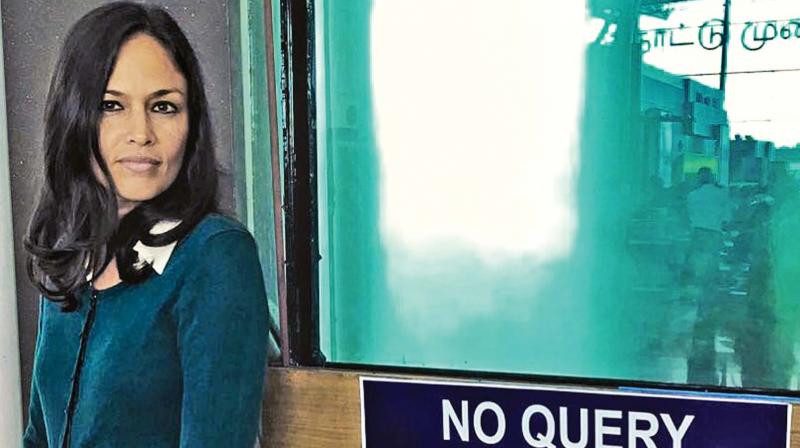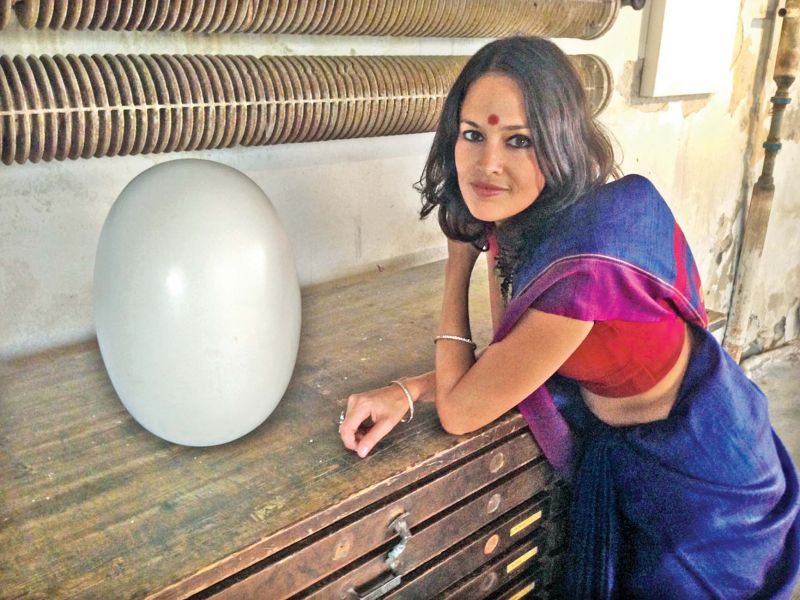Voicing the tales of struggles

Girls are coming out of the woods, wrapped in cloaks and hoods, carrying iron bars and candles and a multitude of scars …
Thus begins the collection of poems from Eric Gregory awardee, poet and dancer Tishani Doshi’s new book — Girls Are Coming Out Of The Woods. The lady, who believes in an empowering society, has made her words speak for her.
In a casual chat with DC, the writer reveals more about why she writes powerful words, how much she loves Chennai and more.
What inspires your writing and what kind of research do you do before attempting to write about social issues?
The backdrop and constant soundtrack by the sea has always been my inspiration to write. Living by the sea has changed my relationship to life and to death. The research I do, is reading the news thoroughly.
What propels you to write more about the society?
I’m not sure it’s the reason why I’m curious. I think the reason I’m curious about people is because I’m a writer.
You and the city of Madras/ Chennai have an unshakable bond; you resonate with each other. How much of you as a person, screams ‘Madras’ and how?
Oh, the ways I love thee! Because it’s a coastal city. Because for its magnitude, it still has a capacity for slowness. And as for the Madrasi in me, I think when you have only ever known one city intimately in your life; it becomes a part of your identity. I think of myself as quite an international person, but if I go a few weeks without idli-sambar, I suffer terrible pangs. And it remains the best place for me to write.
Do you find it strange that occasionally, you are not considered as someone truly belonging to the city, because of your extensive travels and your heritage?
I don’t find it strange because I’ve always felt an outsider wherever I’ve lived. I like that position. It’s conducive to the writer’s life. I like to be looked at as though I’ve drifted in from else where. Belonging is always in transition for me.
Tell us about Girls Are Coming Out Of The Woods... What was the original brainwave for the poem collection?
Reading the newspapers, the horrors of the violence committed against women in this country — that’s what motivated that particular poem. The rest of the poems in the collection are inspired by the fragility and beauty of coastal life, being a woman of a certain age, and the usual love, sex and death of poetry.
 Tishani Doshi
Tishani Doshi
What is feminism according to you?
We live in a country that claims to worship the female principle and yet, the reality is quite different. Until more legislation is put in place to protect women, until mothers and fathers raise their sons and daughters equally, until we can create a society that offers women the same freedom and access to education as men, and ensures women complete power over their reproductive rights, we are going to struggle with feminism. While we are struggling, we should also be talking about masculinity and what that means in India. This is a dual conversation.
Who is your favourite author and which is your favourite book?
My favourite author is always the one I’m currently reading — To the Lighthouse by Virginia Woolf.
You have spoken about how you dance less these days — do you regret that?
I practise yoga and keep up with a level of physicality, but performance is quite different. I spent 15 years performing Chandralekha’s ‘Sharira’... so how can I have regrets? In the future when I look back, I will be
amazed at my own possibilities.
Many of your poems express a strong sense of the place they are set in. Can aspirants find inspiration from the places they live in?
Chennai-Madras is where I was born, and except for a brief period studying and working abroad, I’ve lived here. Still, I know so little of it. I love the experience of being in big cities for a few days, but after that, I find it tiring. I like living by the sea, I like walking, I like being in nature.
But the contrast is important too. I would be lying if I said that there wasn’t something seductive about the thrum of humanity that cities offer. And so of course, yes, all this filters through the writing.
Is there anything that concerns/ excites you about the state of poetry today in India?
I wish more people here would get excited about poetry.

